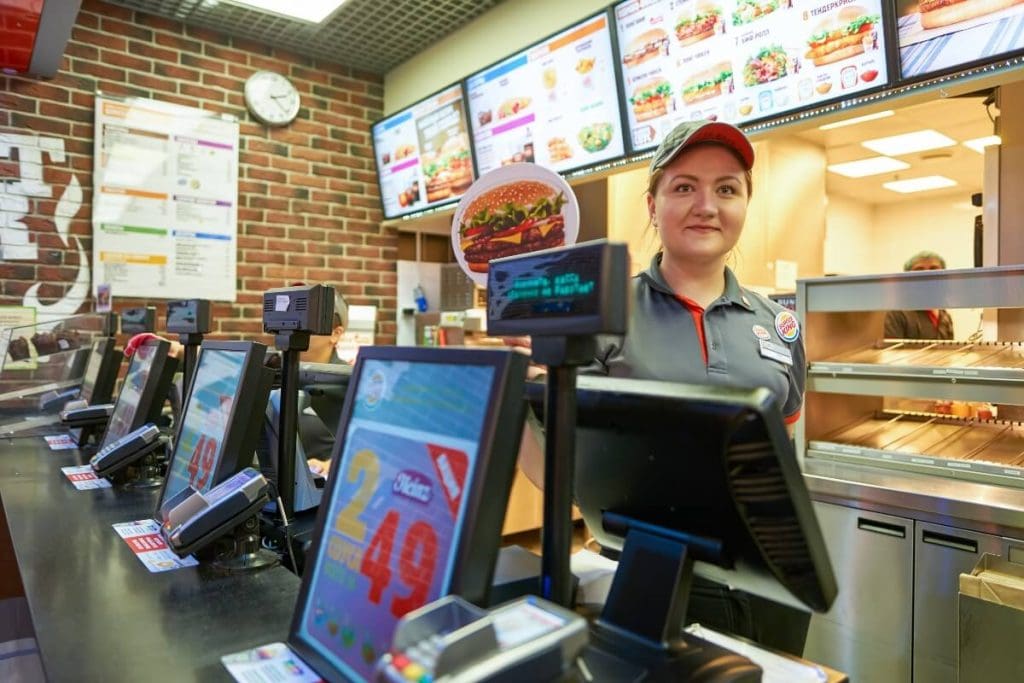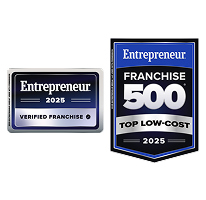Bottom Line Up Front: First-time business owners should focus on proven franchise models with low startup costs ($5,000-$100,000), comprehensive training programs, and strong brand recognition. Insurance, fitness, and food service franchises offer the best combination of low risk and high profit potential.
Essential Criteria for First-Time Franchise Success:
- Initial investment under $100,000
- Comprehensive training and ongoing support
- Proven business model with 5+ years of operation
- Strong brand recognition in local markets
- Low failure rates compared to independent startups
Why Franchises Are Ideal for First-Time Business Owners
Proven Business Models Reduce Risk
Research has suggested that franchise ownership entails lower failure risks than starting one’s business from scratch. Unlike independent startups, franchises provide tested operational systems that eliminate guesswork.
Statistical Evidence:
- According to the International Franchise Association, almost 4% of all small businesses in the U.S. are franchises, generating more than $2.1 trillion and employing 18 million Americans
- Franchise failure rates are significantly lower than independent business startups
- 90% of franchises remain in business after the first year compared to 78% of independent businesses
Built-In Support Systems
First-time owners benefit from comprehensive support that would otherwise require years to develop independently:
- Initial Training Programs: 2-8 weeks of intensive business operation training
- Ongoing Support: Regular check-ins, troubleshooting assistance, and performance monitoring
- Marketing Resources: Pre-developed advertising campaigns and local marketing guidance
- Supply Chain Management: Established vendor relationships and inventory systems
Top Easy-to-Open Franchise Categories
1. Insurance Franchises
Why Insurance Works for Beginners: Insurance franchises offer recession-resistant business models with recurring revenue streams and low physical inventory requirements.
Freeway Insurance Franchise – Industry Leader Part of Confie – the largest privately-held insurance distribution company in the U.S.
Key Advantages:
- Low Initial Investment: Starting at $5,000, total investment $61,000-$113,060
- Liquid Capital Required: $50,000 minimum
- Market Position: Ranked #1 Personal Lines Agency for Six Consecutive Years by Insurance Journal
- Proven Track Record: 35+ years in business, 500+ retail locations across 23 states
- Target Market: Specializes in high-risk drivers, an underserved but profitable niche
Training and Support:
- Comprehensive initial and ongoing training programs
- Specialized attention to diverse customer demographics
- In-house marketing team support
- Local marketing campaign guidance
- Website and app utilization training
2. Fitness and Wellness Franchises
Market Growth Indicators: The fitness industry continues expanding with health consciousness trends and recurring membership models.
Anytime Fitness Example:
- Investment Range: $100,000 startup costs
- Revenue Model: Recurring membership fees provide steady income
- Operating Hours: 24/7 model reduces staffing costs
- Growth Potential: Consistent industry expansion
3. Food Service Franchises
Subway Case Study:
- Global Presence: One of the world’s largest fast-food franchises
- Investment Benefits: Generally affordable compared to other food franchises
- Brand Recognition: Established customer base and marketing systems
- Operational Support: Comprehensive training in food preparation and customer service
Financial Considerations for First-Time Franchise Owners

Understanding Total Investment Costs
Initial Franchise Fee: $5,000-$50,000 depending on brand Equipment and Setup: $20,000-$150,000 Working Capital: 3-6 months of operating expenses Marketing Launch: $5,000-$15,000 for grand opening
Financing Options for New Franchisees
Many franchisors offer financing assistance or partnerships with lenders who understand franchise business models. “Franchises are often viewed as safer investments by banks, as they come with a track record,” making it easier to secure financing and startup loans.
Available Financing Sources:
- SBA loans specifically for franchise purchases
- Franchisor financing programs
- Equipment financing for necessary business tools
- Working capital lines of credit
Evaluation Criteria: Choosing Your First Franchise
Brand Recognition and Market Position
Strong brand recognition reduces marketing costs and accelerates customer acquisition. Look for franchises with:
- Established market presence (5+ years)
- Positive customer reviews and ratings
- Active social media presence and digital marketing
- Local market awareness in your target area
Training and Support Quality
Comprehensive training programs are crucial for first-time business owners. Evaluate:
- Initial Training Duration: 2-8 weeks typical for quality programs
- Training Location: On-site at headquarters plus local field training
- Ongoing Education: Regular updates on industry trends and operational improvements
- Support Accessibility: 24/7 hotlines, dedicated support representatives
Territory Rights and Competition
Understanding your exclusive territory rights prevents oversaturation:
- Protected Territory: Geographic boundaries where you’re the sole operator
- Population Density Requirements: Minimum customer base to support operations
- Expansion Rights: Options to open additional locations in adjacent territories
Industry Growth Projections and Market Opportunities
Insurance Industry Outlook

The insurance industry shows consistent growth with increasing regulatory requirements and population expansion:
- Market Size: $1.3 trillion in written premiums (2009-2019)
- Growth Rate: 3-5% annual expansion projected through 2030
- Demographic Trends: Aging population increases insurance needs
- Technology Integration: Digital tools improving customer service efficiency
Fast Food and Quick-Service Restaurants (QSR):

Fast-food chains have some of the easiest franchises to start because they typically have well-established and successful business models. They have a track record of serving popular and consistent menu items, which is beneficial for regular revenue. They often provide comprehensive training and support, including guidance on food preparation, customer service, and supply chain management.
Most major chains have strong brand recognition, which can attract customers and drive sales. They also offer turnkey operations with menus, processes, and customer bases. Investment requirements can vary, but they are often reasonable.
Fitness Industry Trends

Health and wellness consciousness drives continued fitness industry expansion:
- Market Growth: 5-7% annual growth projected
- Demographic Shifts: Millennials and Gen Z prioritize fitness investments
- Technology Integration: Wearable devices and apps enhance member engagement
Success Strategies for New Franchise Owners
Building Your Management Team
Effective delegation is crucial for franchise success. Focus on hiring:
- Operations Manager: Daily business oversight and staff supervision
- Customer Service Lead: Ensures brand standards and customer satisfaction
- Marketing Coordinator: Local advertising and community engagement
Financial Management Best Practices
Monitor key performance indicators that drive franchise profitability:
- Monthly Revenue Targets: Based on franchisor benchmarks
- Customer Acquisition Costs: Marketing spend per new customer
- Average Transaction Value: Revenue optimization opportunities
- Customer Retention Rates: Long-term business sustainability
Community Integration
Local market success requires active community participation:
- Networking Events: Chamber of Commerce and business associations
- Community Sponsorships: Local sports teams and charity events
- Referral Programs: Incentivize existing customers to bring new business
Common Pitfalls to Avoid
Undercapitalization
Many new franchise owners underestimate working capital needs. Ensure you have:
- 6 months of operating expenses in reserve
- Emergency fund for unexpected repairs or equipment replacement
- Marketing budget for sustained customer acquisition
Location Selection
Poor location choice is a primary cause of franchise failure. Consider:
- Traffic Patterns: Foot traffic and vehicle accessibility
- Demographics: Target customer concentration in the area
- Competition Analysis: Existing businesses offering similar services
- Future Development: Planned construction or zoning changes
Next Steps: Starting Your Franchise Journey
Research and Due Diligence
Before committing to any franchise opportunity:
- Review Franchise Disclosure Document (FDD): Legal requirements and financial obligations
- Interview Current Franchisees: Real-world operational insights and challenges
- Analyze Financial Performance: Average unit volumes and profit margins
- Evaluate Market Conditions: Local demand and competition analysis
Professional Consultation
Consider working with:
- Franchise Attorneys: Contract review and legal protection
- Accountants: Financial planning and tax implications
- Business Advisors: Operational strategy and growth planning
Why Choose Freeway Insurance Franchise
As the largest privately-held insurance distribution company in the U.S., Freeway Insurance offers first-time business owners a proven path to entrepreneurial success. Our franchise model combines:
Established Market Leadership:
- 35+ years of industry experience
- 500+ retail locations across 23 states
- Ranked #1 Personal Lines Agency for Six Consecutive Years by Insurance Journal
- Part of the Confie family of brands
Comprehensive Support System:
- Low initial investment starting at $5,000
- Extensive training and ongoing support
- In-house marketing team assistance
- Proven business model with consistent profitability
Market Opportunity:
- Specialization in underserved high-risk driver market
- Recession-resistant business model
- Growing demand for affordable insurance options
- Technology-enhanced customer service platform
Are you looking to start your own insurance franchise?
Now that you have insight about several industries, you want to partner with the right company that will help you meet your goals. Freeway Franchise has the type of support you need due to our established reputation, ongoing training programs and support, low initial investment, and access to experts that increase your chances of success. All of this makes Freeway the clear choice. Visit our website or call (877) 822-3024 to learn more.
This article was written by the Freeway Insurance franchise development team, leveraging 35+ years of industry expertise and insights from 500+ successful franchise locations nationwide.



